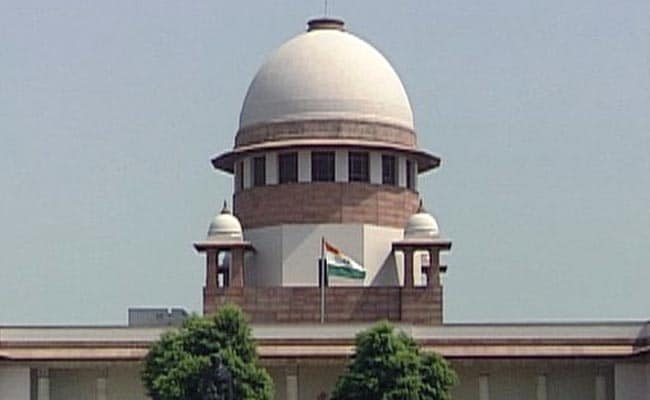
File Photo of Supreme Court
Mumbai:
A day after Bombay High Court dismissed a plea filed by RTI activist Shailesh Gandhi seeking details of Income Tax Return (ITR) of senior NCP leader Ajit Pawar under the Right to Information (RTI) Act, the petitioner today said he will challenge the decision in Supreme court.
Mr Gandhi, a former Central Information Commissioner said though he is disappointed with the verdict, he has now sought advice on the matter from other RTI activists in the country including Aruna Roy, Prashant Bhushan, Jagdeep Kochar, Trilochan Shashtri and others and has also send them across the soft copy of the order.
"Yes, I am very much disappointed with the verdict and its my right to express it and challenge it. I have written (emails) to my friends and activists and have asked for their advice on how to take this further," Mr Gandhi said.
The Bombay High court had yesterday held that a third party is not entitled to seek information contained in the IT returns filed by former Maharashtra Deputy Chief Minister Ajit Pawar as it does not involve any public interest.
"I had felt that the Girish Ramchandra Deshpande judgement by Supreme Court had constricted RTI by expanding the scope of Section 8(1)(j) far beyond the law, and hence tried to get the IT returns of Ajit Pawar in RTI," Mr Gandhi told PTI.
He said it was anticipated that the PIO, FAA and CIC will reject his plea and then he approached the high court. "I approached Bombay High Court through a writ in 2012. But the court dismissed my petition. I am thinking of challenging the decision before the Supreme Court," he said.
Mr Gandhi, who has exposed several scams at the national-level, said the Girish Deshpande judgement is being used everywhere to deny most information regarding public servants which could expose wrongdoing, arbitrariness or corruption.
"In the Ajit Pawar case, I had contended that there is a general belief that politicians and elected representatives are corrupt and amass wealth at the expense of the public. There is also a common belief that Income Tax authorities do not check IT returns of those who are elected and their affidavits filed at the time of standing for elections," he said.
Mr Gandhi, a former Central Information Commissioner said though he is disappointed with the verdict, he has now sought advice on the matter from other RTI activists in the country including Aruna Roy, Prashant Bhushan, Jagdeep Kochar, Trilochan Shashtri and others and has also send them across the soft copy of the order.
"Yes, I am very much disappointed with the verdict and its my right to express it and challenge it. I have written (emails) to my friends and activists and have asked for their advice on how to take this further," Mr Gandhi said.
The Bombay High court had yesterday held that a third party is not entitled to seek information contained in the IT returns filed by former Maharashtra Deputy Chief Minister Ajit Pawar as it does not involve any public interest.
"I had felt that the Girish Ramchandra Deshpande judgement by Supreme Court had constricted RTI by expanding the scope of Section 8(1)(j) far beyond the law, and hence tried to get the IT returns of Ajit Pawar in RTI," Mr Gandhi told PTI.
He said it was anticipated that the PIO, FAA and CIC will reject his plea and then he approached the high court. "I approached Bombay High Court through a writ in 2012. But the court dismissed my petition. I am thinking of challenging the decision before the Supreme Court," he said.
Mr Gandhi, who has exposed several scams at the national-level, said the Girish Deshpande judgement is being used everywhere to deny most information regarding public servants which could expose wrongdoing, arbitrariness or corruption.
"In the Ajit Pawar case, I had contended that there is a general belief that politicians and elected representatives are corrupt and amass wealth at the expense of the public. There is also a common belief that Income Tax authorities do not check IT returns of those who are elected and their affidavits filed at the time of standing for elections," he said.
Track Latest News Live on NDTV.com and get news updates from India and around the world

